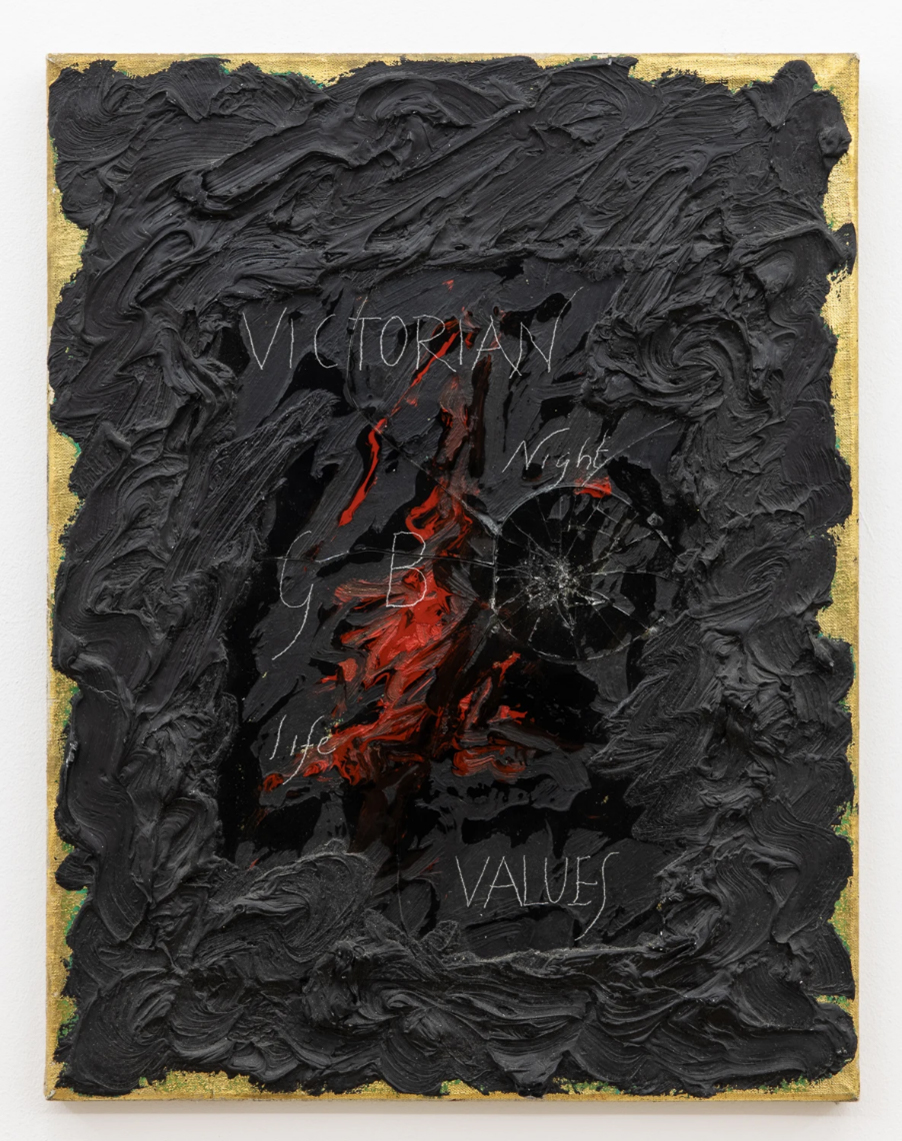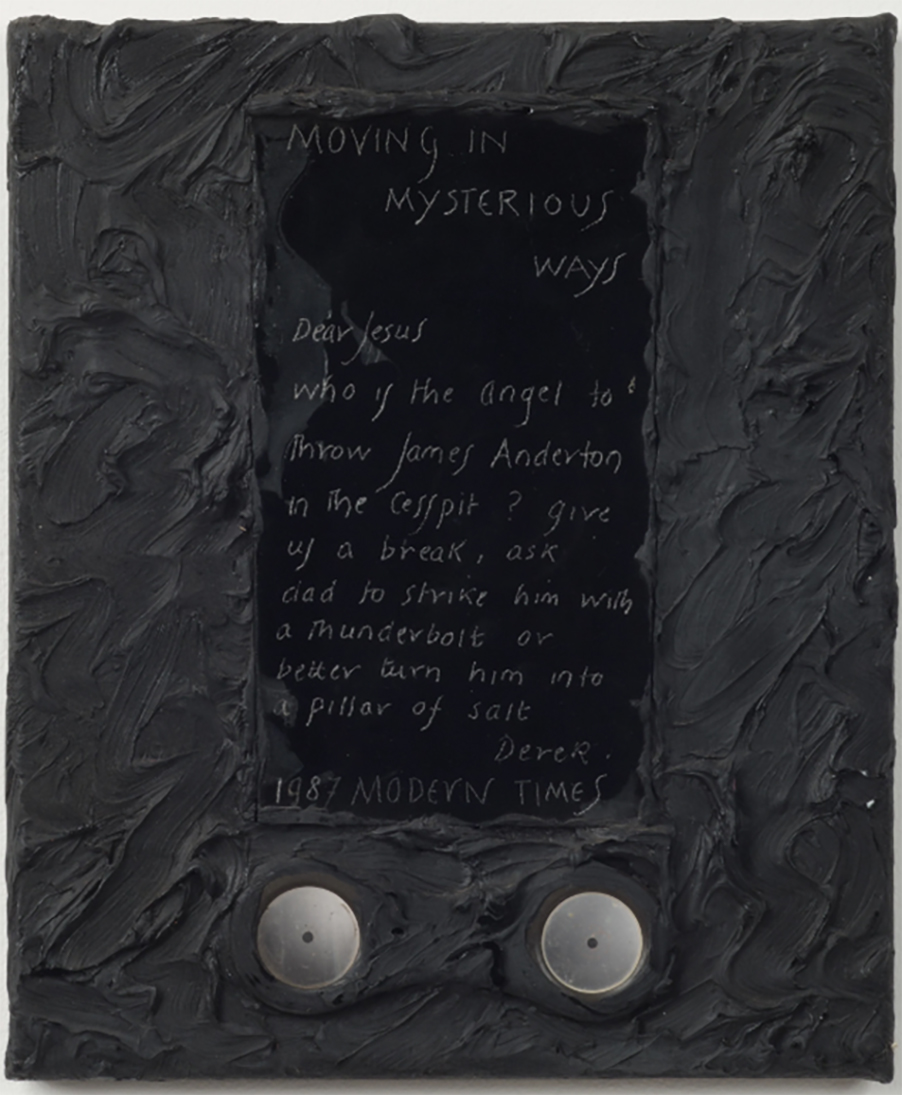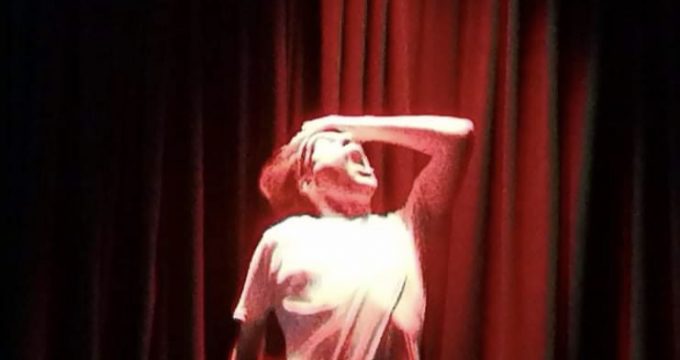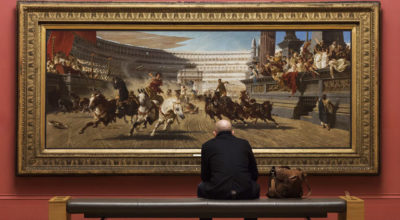Following the exhibition and activity around Derek Jarman Protest! we wanted to build on the success of the project and its legacy by acquiring two works from Jarman’s series of Black Paintings from the mid-1980s.
Both works fall within the focus of our current collection development policy to specifically acquire works that will address inequalities including those around gender, race and sexuality and we are committed to acquiring work by artists, makers and designers who identify as LGBTQIA+.
The two works we have been able to acquire are Greivous Bolidy Harm (1986) and British Scum (1987).
Derek Jarman’s Black Paintings were conceived after he received his AIDS diagnosis in 1986 and have been described as “small universes of anger, pain and sanctity”. They hold as muchpower today as they did over 35 years ago. We chose two of these works to acquire which not only reference the political and social divisions exposed and articulated so powerfully by Jarman in the 1980s but also speak to contemporary urgencies and debate around sexuality, national identity and societal divisions in 21st century Britain.

Grievous Bodily Harm (1986) was created whilst Jarman was working on his film The Last of England, released in 1987 (which had a working title of GBH). Emerging from under the thick layers of black paint is an outline of part of Britain rendered in fiery or blood-red paint as if burning. The work critiques what Jarman saw as the introduction of regressive and punitive policies and practices by the Conservative government under Margaret Thatcher. The introduction of Section 28, the dismantling of traditional industries and unfair economic policies exacerbated division and inequalities in British society and inflicted great harm.

British Scum (1987) will hold particular resonance for people living in and around Manchester in that period. The title and the etched text refer to James Anderton, the former Chief Constable of Greater Manchester. In 1986 – the height of the AIDS/HIV crisis – at a police training event, Anderton was quoted as saying that people living with AIDS were “swirling in a human cesspit of their own making”. He had also once suggested that homosexuality be outlawed.
Jarman responded to Anderton’s pronouncements by creating this visceral work. Its witty but scathing text, etched into the glass plate at the centre, lampoons the Chief Constable’s pronouncements.
Manchester Art Gallery does not have an art fund to acquire works for the collection. We rely on gifts, bequests, trusts and other bodies to fund acquisitions, so we are very grateful to the Rick Mather David Scrase Foundation who have supported the purchase of these two powerful artworks.
Fiona Corridan, Curator






